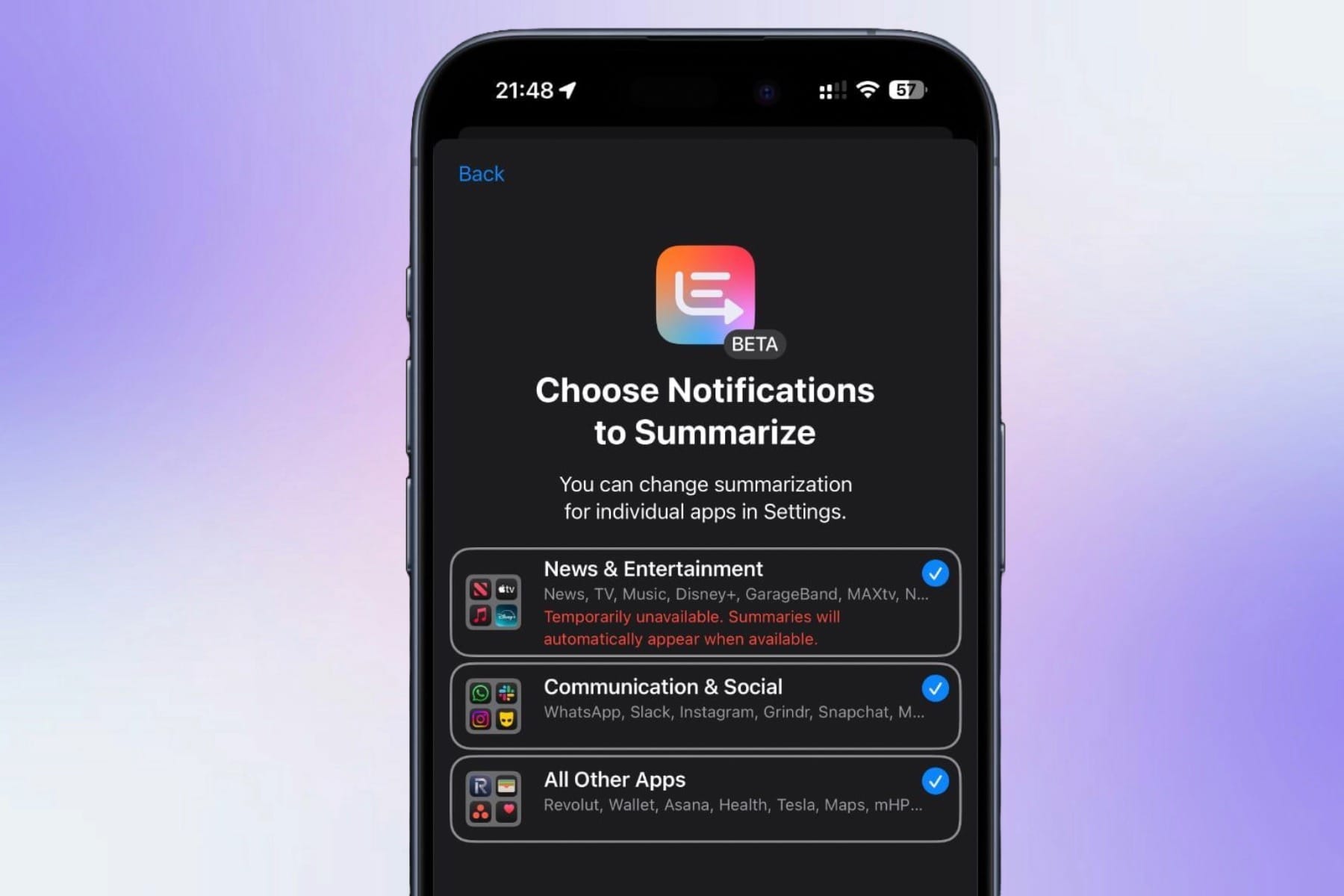Remember the time when Amazon's Echo smart speaker was listening to people doing the... ahem.. dirty in their bed? Or sending recorded conversations to a random stranger? Or employees knowing which celebrity bought a dildo? Yeah, well, it's now buying a wearable company that makes an always-listening wrist band.
"If Anthropic Succeeds, a Nation of Benevolent AI Geniuses Could Be Born." This was the headline of an article about Anthropic executives, Dario and Daniela Amodei, and how they value ethics in AI. Now, Dario, CEO of the company, is okay with taking money from the Middle East.
In related news, Microsoft is bringing good AI tools to Windows. Apple, on the other hand, is reviving the an error-prone news summarization system on iPhones powered by... welp... AI. Dig right in:
Amazon is buying a wrist wearable that listens to everything you say

Amazon is making a significant stride into the AI wearable market with its acquisition of Bee, a startup known for a device and Apple Watch app that records user conversations to create a personalized AI assistant.
While the terms remain undisclosed, Amazon confirmed that all Bee employees have been offered positions. This move signals Amazon's continued investment in AI-driven personal technologies, despite a mixed track record with previous wearable ventures like the discontinued Halo health tracker.
The acquisition, however, brings to the forefront familiar privacy discussions, reminiscent of past concerns regarding Amazon's Alexa and the handling of recorded audio.
- Bee's wearable offers a personalized AI assistant that passively learns from conversations and activities, providing summaries and suggesting to-do items.
- The device includes a mute button, but its always-listening capability raises privacy considerations, echoing past concerns with Amazon's Alexa.
- Amazon's history in wearables is varied, with some successes like Echo Frames and failures such as the Halo health tracker.
Read the acquisition deets on LinkedIn.
More AI is coming to Windows 11, but some of it is half-decent
Microsoft is rolling out a fresh wave of AI-powered features for Windows 11, including the highly anticipated Copilot Vision.
This tool allows the AI assistant to analyze everything displayed on your screen, answering questions about open applications and webpages, or even guiding you through specific tasks like photo editing.
While Copilot Vision is available to all Windows 11 users, a suite of exclusive AI tools is being launched specifically for Snapdragon-powered Copilot Plus PCs, signifying a deeper integration of AI capabilities for these advanced devices.
- Copilot Vision enables users to interact with Copilot using natural language about their on-screen content, eliminating the need for extensive typing.
- Copilot Plus PCs will gain an AI-powered "agent" in the Settings app for natural language search and task completion, and enhanced "Click to Do" actions for quicker tasks like summarizing text or scheduling Teams meetings.
- Exclusive Copilot Plus PC features also include an AI sticker generator in Paint, an object select tool in Paint, AI lighting in Photos, and a "perfect screenshot" tool in Snipping Tool.
Find out the full changelog at Microsoft.
"Ethical AI" company says it's now okay to get bloody dictator money

Anthropic, an AI company that once championed ethical AI development with its chatbot Claude guided by a "constitution" based on the Universal Declaration of Human Rights, appears to be shifting its stance on funding sources.
Leaked Slack messages from CEO Dario Amodei reveal the company's intent to seek investments from Middle Eastern governments, including the UAE and Qatar, despite acknowledging that such funding would benefit "dictators" and presents a "real downside."
This pivot, driven by the immense capital available in the Gulf region, highlights the increasing pressure on AI firms to secure massive investments for infrastructure expansion, even if it means compromising stated ethical principles.
- Amodei previously cited national security concerns for declining Saudi Arabian funds last year, making this current pursuit of Gulf State money a significant reversal.
- The CEO argued that accepting financial investment from Gulf countries is distinct from building AI infrastructure there, which he still deems "dangerous" to hand to "authoritarian governments."
- The news follows OpenAI's involvement in the "Stargate" AI infrastructure project, also backed by the UAE royal family, which has a concerning human rights record.
Read the full report at WIRED.
Apple brings back wayward AI notification summaries for news apps

Apple has reinstated its Apple Intelligence Notification Summaries for News and Entertainment apps in the fourth betas of iOS 26, iPadOS 26, macOS 26, visionOS 26, and watchOS 26.
This feature, which condenses multiple notifications into a single, one-sentence overview, was temporarily removed in January following widespread criticism for generating misleading or factually incorrect headlines.
Apple states it has addressed these issues and improved the summarization process. Users will now see a clear "Summarized by Apple Intelligence" annotation, with summaries also appearing in italics, and can opt-in or opt-out of the feature on a per-category basis.
- The previous version of Notification Summaries in iOS 18 drew criticism from outlets like the BBC for errors such as "Netanyahu Arrested" and misidentifying a darts champion's win.
- Apple has implemented an option for users to directly report concerns about inaccurate notification summaries to help refine the feature during the beta testing period.
- This feature is available on devices compatible with Apple Intelligence and is designed to group notifications and provide a quick overview.

